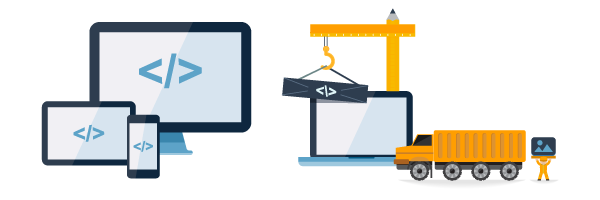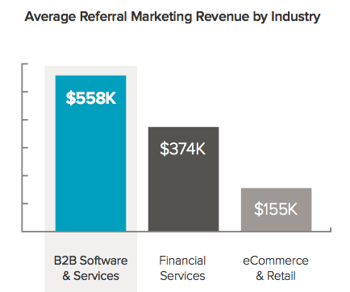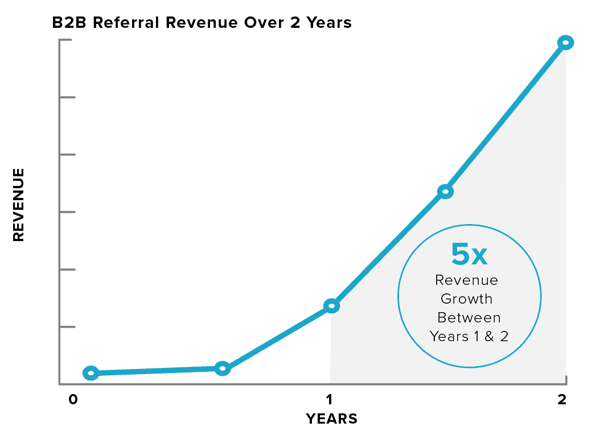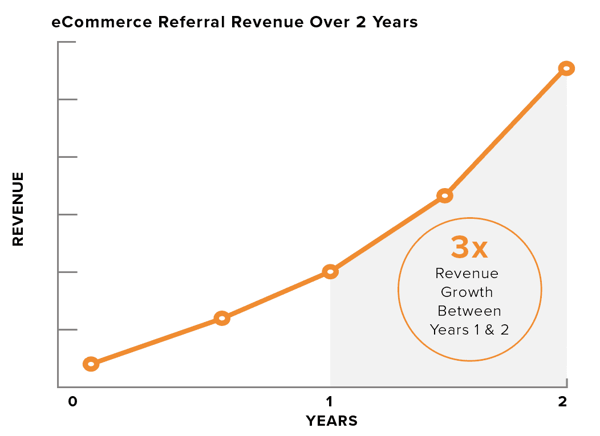Advocacy Launch Guide
How to Launch a Customer Advocacy Program in 6 Easy Steps
Invite friends to Ambassador and earn $250! For every person you refer who takes a demo, you will earn $250.
Enroll TodayContemplating why referral software should be part of your marketing strategy? Learn why growing companies are using marketing tech to grow this channel.
Are you contemplating why referral software should be part of your marketing strategy? Whether you're a marketer in the B2B space or with a consumer brand, you're not alone. Especially since referral programs drive some of the highest conversion rates among all marketing channels, it's no surprise that more and more businesses are leveraging referral software to scale this customer acquisition channel.
Referral marketing is when a company rewards fans, customers, influencers, and affiliates - basically any defined contact — for referring their products/services. These brand ambassadors may also be incentivized with monetary or non-monetary rewards.
Many companies run their referral marketing programs manually, but are losing the ability to capitalize on the large opportunity of gaining new loyal customers. By automating the manual process of enrolling, tracking, managing and rewarding referrals, referral software enables companies to quickly scale their referral marketing efforts. Furthermore, leveraging referral software enables companies to increase engagement and acquire new customers.

In most cases, in-house referral programs are built for the here-and-now. While this approach might offer the basic functionality to capitalize on referrals in the short-term, it can create development nightmares as your business — and your referral program — grows.
As with any high-value marketing channel, it’s important to consider the scalability, flexibility, and extensibility of your referral marketing program from the very start. The last thing you want is to find yourself in a position where it’s virtually impossible to bolt-on functionality that would help you optimize and scale referral revenue.
Sure, you might be able to build a basic referral program with basic tracking and reporting capabilities. But what happens when the referral program matures beyond entry-level functionality? If the in-house program isn’t designed around flexibility and extensibility, it can create very large barriers to scale.
Here are 3 challenges that can arise when brands choose manual processes rather than investing in referral software:
1. An inability to automate manual activities like enrollment workflows and referral commission payouts at scale. When your referral program is small, managing things manually isn’t a problem. When you have hundreds or thousands of customers and just as many approved referrals every month, automation is the difference between referral marketing success and failure.
2. Difficulty integrating with other critical systems like Salesforce, Marketo, Mailchimp, Magento, and Shopify. The process of developing direct integrations with big vendors like Salesforce and Magento requires a lot of time and technical aptitude. This is something your in-house development team might be able to tackle, but asking them to do it means asking them to prioritize it over other important initiatives. That said, if you don’t invest in those integrations, it will significantly hamper the value you — and your customers — can reap from a referral program.
3. Clunky browser-based mobile experiences that kill engagement and sharing. Because referral marketing isn’t most companies’ core competency, the vast majority of DIY referral programs have poor (or nonexistent) mobile experiences that feel bolted on. With mobile usage skyrocketing, these second-rate experiences can kill referral engagement. Mobile-first functionality can be added on after-the-fact, but doing so requires significant mobile aptitude and technology that’s flexible enough to incorporate it.
One of the biggest benefits of buying referral marketing software from an established vendor is that it virtually future-proofs your program.
Best-in-class referral marketing vendors build their solutions around flexibility, scalability, and extensibility, and their teams are constantly working on new features to make their customers more successful. This allows your business to easily implement new features and functionality on-demand, with relatively little back-end development.
If there’s one question we hear more than any other from customers looking to start or scale a B2B referral program, it’s this: Do B2B referral programs actually work?
It’s a fair question. In many circles, referral marketing is still viewed as a consumer-focused strategy — one best left to brands with a viral product or a unique mission that customers can easily rally around. And while referral marketing absolutely works for those types of businesses, it’s a mistake to assume it’s not the right fit for B2B software companies. Especially since 78% of B2B marketers say that referral programs generate good or excellent leads.
 So when we started studying our platform’s data, we were pleasantly surprised to find that our B2B customers were generating higher success metrics than any other vertical we track.
So when we started studying our platform’s data, we were pleasantly surprised to find that our B2B customers were generating higher success metrics than any other vertical we track.
What's even more shocking was the fact that those B2B companies’ average revenue was more than three times higher than eCommerce, despite lower ambassador enrollment and activity metrics.
Of course, because of B2B companies’ generally higher customer LTV, it’s difficult to make a definitive apples-to-apples comparison to eCommerce brands. That said, when we examined average ROI (total investment in Ambassador plus customer acquisition costs, divided by total revenue generated) and typical conversion metrics for our B2B customers, the argument in favor of B2B referral marketing grew stronger.

One final trend also stood out: Time. More specifically, B2B companies that play the long game — giving their referral program time to evolve and gain traction — see far greater results.
That isn’t terribly shocking given the length of a typical B2B sales cycle, but it confirms the value of patience and consistency in B2B referral programs. To illustrate this, we studied some of our longer-term B2B customers and charted their revenue growth over the first year.

As you’ll see in the graph above, growth is slow initially, but there’s a clear inflection point. Three months after implementation, revenue spikes dramatically. And three months after that, revenue grows by 5X!
Now this isn't to say referral marketing isn't a powerful growth driver for eCommerce companies. In fact, for many eCommerce brands, referral marketing is a no-brainer. Studies have shown that referred shoppers cost less to acquire, buy more, and stay longer. And a survey conducted online by Nielsen’s Harris Poll found that 82% of Americans seek recommendations from friends and family when considering a purchase, while 67% say they’re more likely to make a purchase when a friend or family member shares it online.
That research is all well and good, but what does it really tell us about the success of referral marketing as a strategy? And what does referral marketing success actually look like?
To help answer those questions, we dove into our data again. The goal: Evaluate participation and conversion metrics generated by our most successful eCommerce customers, and extract insight that can help other retailers assess and optimize their referral programs. Here’s what we found:

Those numbers might not seem dramatic, but let’s perform a quick calculation. If you have 10,000 ambassadors and 40% of them share their link just once, it will generate 46,000 visits to your site. And if each visit is worth $3.62, that equates to $166,520 in revenue.
One common assumption with consumer-facing referral programs is that, over time, results will plateau. The theory is that ambassadors will grow weary of sharing (or they’ll run out of people to share with) and activity will flatline. Fortunately, our data paints a very different picture.
In fact, we noticed an interesting trend. While revenue spikes sharply in the first six months after launch, growth continues to rise steadily over the following 18 months — increasing, in fact, at a nearly 3x multiple between years one and two.

No matter the industry, there is one key takeover: Successful referral programs generate a natural network effect.
Which is why referral software is a valuable investment for companies looking to truly scale this channel. Automation gives you the ability to reach your customers in various ways to refer your business via their preferred method of sharing. Emails, social media shares, and text messages with shareable links that are unique to each ambassador can be as easy as a click of a button.
As you acquire more referred customers, an abnormally high proportion of them will convert into new ambassadors. Those ambassadors will then draw in new customers, and the cycle will start all over again.
Social proof is a powerful psychological trigger that referral programs naturally harness. People are more likely to trust a recommendation from someone they know than an advertisement from a brand. This is why referral programs tend to outperform other marketing channels in terms of trust and effectiveness. By encouraging customers to share their positive experiences, businesses can amplify their reach and acquire new customers who are already inclined to make a purchase.
Additionally, offering incentives to both the referrer and the referee further strengthens the program’s appeal. These rewards can be tailored to suit the preferences of your target audience, whether it’s discounts, exclusive access, or cash bonuses. The key is to ensure that these incentives align with your brand values and customer expectations, driving engagement and maximizing the program’s success.
Unlock growth with referrals—request your free demo today and see the impact firsthand!
Want to build a referral program that outperforms other marketing channels? Find out why referral programs work, and how to build yours with our epic...
These referral marketing statistics tell a compelling story on how to acquire new customers to drive business growth by leveraging recommendations.
What's the difference between word-of-mouth marketing models? We break down all the variations and make the case for why you need this marketing...
Sign up for our Ambassador newsletter and get notified when we publish new
eBooks, case studies, blog posts and more. It's like a crash course in referral
marketing - and it's free. Plus, we promise not to spam you.
Platform
© 2024 i2H Inc. All rights reserved | Privacy Policy
© 2021 Kalungi, Inc. - All Rights Reserved.
Powered by Atlas - a B2B SaaS HubSpot theme